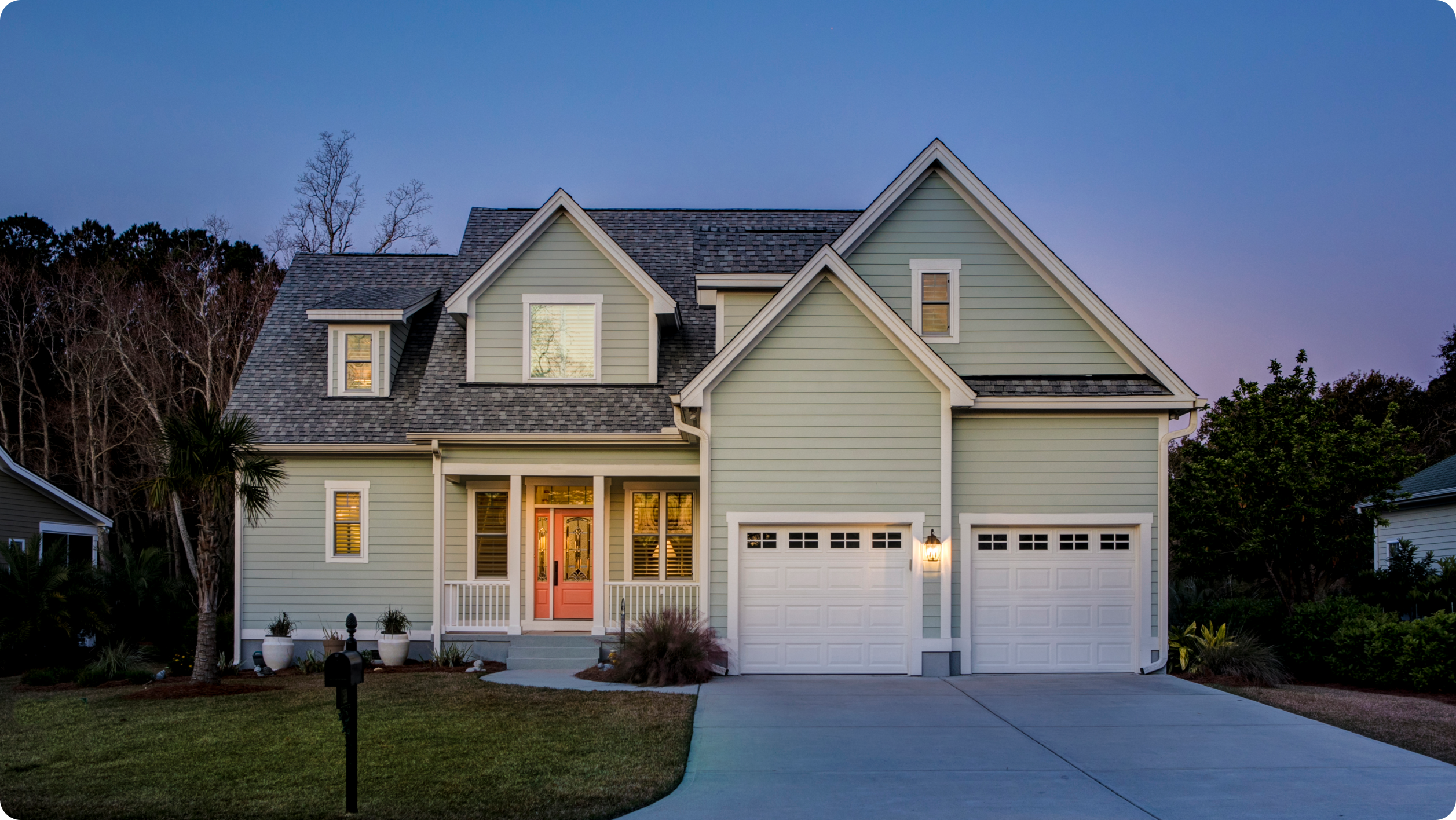In this section just cover an overview and insights into what readers will gain after reading this blog.
Many people think they need a big pile of cash to start a rental property business, but that’s not always true. Let’s discuss a great option for real estate investors: the FHA Loan.
You may have heard FHA loans don’t apply to investment properties, but they can if you meet certain requirements. In this guide, we’ll explain how to use FHA loan for investment property financing. Read on to find out.
Key Takeaways
- For an FHA loan, you must live in the property for at least one year, but you can rent out additional units if it’s a multi-unit property.
- Down payments are as low as 3.5% with a credit score of 580 or more and 10% for scores between 500-579.
- FHA loans include mortgage insurance premiums, which are an added cost.
- There are loan limits for FHA loans that vary based on location and property size.
- Generally, you can only have one FHA loan at a time, which may limit the expansion of your real estate portfolio.
What is an FHA Loan?
In short, FHA stands for the Federal Housing Administration, and an FHA loan is a government-backed mortgage issued by approved banks or independent lenders.
FHA loans are designed to help low- to middle-income families become homeowners by offering more accessible terms—such as lower credit score requirements and smaller down payments. As of 2022, borrowers with a credit score of 580 or higher can finance up to 96.5% of a home’s value with just a 3.5% down payment. Those with credit scores between 500 and 579 may still qualify but must provide a 10% down payment.
When considering an FHA loan, it’s also important to factor in the average mortgage length, which typically ranges from 15 to 30 years depending on the loan structure and your long-term financial goals. Especially if you’re managing funds through an LLC business bank account.
Who is Eligible for an FHA Loan?
- A steady income with verifiable proof of employment
- A debt-to-income ratio that doesn’t exceed 43%
- A willingness to pay a mortgage insurance premium along with your monthly mortgage payment
- The home financed by your loan must be your primary residence as the borrower
That last one would bar you from purchasing an income property with an FHA Loan, but not so fast. Sure, the home needs to be your primary residence, but the property is allowed to have up to four livable units, so you can live in one and rent the other three for incredibly cheap compared to the typical cost of real estate.
Plus, you only have to live in the home for up to 12 months after closing. Once that period is over, you are within your rights to move out and rent the other unit where you once lived and could even repeat the process with another property if you want to.
If you rent out those four units with the help of an FHA Loan or decide to buy another property using the exact funding source, Baselane’s Accounting Tool can help you keep it all straight.
That’s the good news.
Of course, like everything, FHA Loans have a few drawbacks, whether you’re using them to purchase an income property or not. One of the big ones is the expense of the mortgage insurance premiums you must attach to your mortgage payments to inoculate the lender against the possibility of default. Over time, you can pay the principal and get rid of mortgage insurance premiums by having 20% equity in the home.
Plus, only some people want to be a landlord and share parts of a property with another person.
Pros and Cons of an FHA Loan for a Rental Property
Considering an FHA loan for an investment property? As with any financial decision, weighing the pros and cons is important. FHA loans have certain benefits that make them attractive but may also have downsides depending on your situation.
Here’s what you need to know about securing an FHA loan investment property.
Pros of Using an FHA Loan for an Investment Property
- Low Down Payments: Borrowers can put down as little as 3.5% of the purchase price.
- Flexible Credit Requirements: FHA loans have more lenient credit requirements than conventional loans.
- Higher Debt-to-Income Ratios: Potential investors can qualify for FHA loans, even with other significant debts.
- Refinancing Opportunities: An FHA loan for an investment property makes refinancing easier, which can lower monthly payments or shorten loan terms.
- Potential for House Hacking: FHA loans allow purchasing a multi-unit property (up to four units) if you live in one unit while renting out the others (called house hacking).
- Assumable Loans: An FHA investment loan lets buyers take over the seller’s loan instead of getting a new mortgage.
Cons of Using an FHA Loan for an Investment Property
- Owner Occupancy Requirement: Using an FHA loan for rental property requires the borrower to live in the property for at least one year.
- Limits on Number of Properties: With an FHA investment loan, you can typically only have one outstanding loan at a time.
- Higher Mortgage Insurance Premiums: FHA mortgage insurance comes with an upfront and annual Mortgage Insurance Premium (MIP).
- Property Condition Standards: FHA loans require properties to meet specific health and safety standards.
- Loan Limits: FHA loans have set limits for the loan amount, which varies by location and the number of units in the property.
If you’re asking, “Can I get an FHA loan if I own a rental property,” you’re on the right track in exploring your options. An FHA loan for an investment property is particularly appealing for first-time investors or those with limited down payment funds.
But it’s important to know the restrictions and additional costs involved. Understanding these factors is crucial in making a well-informed decision for your property investment journey.
How to Apply for a FHA Loan for a Rental Property
Once you choose a lender, either a bank or private lender offering FHA Loans, you can go to the bank in person to get an application or apply online.
Like any other mortgage lender, FHA lenders offer varying rates with varying terms, so comparing at least five is essential before choosing one.
Then, once you have settled on a lender, it’s time to give them some basic information that includes the following:
- Name
- Property Address
- Employment history
- Rental Income information
- Social Security Number
- The purchase price for the property
- Down payment amount
- Driver’s License or state-approved I.D.
Providing the above authorizes the lender to do a credit check to verify your debt load and current monthly payments. To be approved, you will also be responsible for several things:
Credit score requirements – 500 to 580 (regular mortgage loans require at least 620).
Down payment – 3.5% to 10% (depending on credit score).
Loan-to-value ratio – 96.5% or lower.
Closing costs – 2% to 5% of the loan amount (on top of the down payment).
Debt-to-income ratio (DTI) – Shouldn’t exceed 43% in all but a few cases, and you typically shouldn’t spend more than 31% on a mortgage payment. A lender may allow for a higher DTI if you have an exceptional credit score or a large number of cash reserves.
Mortgage Insurance Premium (MIP) – There are two types of MIP: The upfront MIP, which is 1.75% of the total value of your loan that’s paid at closing, and an annual fee, which is produced in monthly installments along with your mortgage payment and depends on the size of your down payment, the length of your mortgage term, and how much money you borrowed. The lender usually calculates your annual payment as a percentage of your base loan value.
FHA Loan Limit – Your loan is capped at $498,257 in regions where 115% of the median home prices fall below the FHA’s “floor” limit for 2024. In high-cost areas where this limit is surpassed, the maximum “ceiling” limit for FHA loans rises to $1,149,825.
FHA Appraisal – The property must pass an FHA appraisal to meet the FHA’s minimum property standards.
An FHA Loan typically takes 30 to 45 days from start to finish to close. During that time, it goes through an underwriting process where the underwriter verifies the financial documents supplied, whether or not you can take on the loan, and whether you and the chosen property meet the requirements of the FHA Loan itself.
FHA Loan Document Checklist
In addition to your application form, here’s a list of documents you will need to submit as part of your Federal Housing Administration (FHA) Loan application:
- Proof of social security number
- Driver’s License or state-approved I.D.
- Two years worth of W-2s, pay stubs, and valid tax returns
- Sign and date letters for income sources from gifts that you don’t need to pay back
- Bank statements for all accounts for the past three months
- Recent utility bills to supplement a thin credit score
- Year-to-Date Profit and Loss statements for the past three years if you own your own business
- Account statements for all held investments, including mutual funds, stocks or 401ks
- Green card or work permit (if applicable)
- Proof of home ownership (if applicable)
- Proof of co-signer on any loan or credit vehicle (if applicable)
- Proof of property rental, including landlord’s name and address, and 12 canceled rent checks (if applicable)
- Rental agreements for a multi-unit property (if applicable)
- Property tax bill (if applicable)
- Payment coupon for the current mortgage (if applicable)
- Note and deed for any existing loan (if applicable)
- Hazard homeowner’s insurance policy (if applicable)
Where to Find Rental Properties Eligible for FHA?
Real estate investors should determine a preferred investment market and focus their search. Start with the FHA maximum loan amounts suitable for small multifamily properties in your region. If you’re making the minimum down payment, FHA loan limits will be a good indicator of where you can find suitable rental properties.
Drive your market regularly and create a database of multifamily properties with no more than four units. You can find owner information in online county tax records. Start following up with the owners consistently, and let them know you want to purchase properties like theirs. Having an LLC business bank account in place can also show you’re financially prepared to close quickly.
Online marketplaces designed primarily for investors like HouseCashin are the best resource. In addition to helping you find investment properties in your area, they have tools to reach other goals, such as securing financing at the best rates and estimating the property’s profit potential.
You can find demographic data, investment evaluation tools, special investment zones in your location, and features showing data for a particular market area you select.
Another online source — the hud.gov website — lists HUD/FHA homes in foreclosure. View the section “Homes for Sale.” You can find foreclosures listed by HUD/FHA, VA, FDIC, USDA, Fannie Mae, Freddie Mac, IRS, U.S. Customs, the U.S. Marshals Service, and the General Services Administration. There are other tools on the website to determine whether a targeted property is FHA-approved.
Primary online residential property listing services like Zillow are good places to search for FHA-qualified rental properties. These websites have a search filter option for multifamily properties that will speed up the process. Some also indicate whether the selected property has been approved for an FHA loan.
Final Thoughts
With FHA investment loans, you can buy a property with up to four units, live in one, and rent out the rest. But remember, FHA loans require you to live in the property for at least a year and limit how many properties you can own. It’s also important to learn how to organize bank accounts properly to keep your personal and rental finances separate and compliant.
At Baselane, we’ve got your back. We check out over 50,000 loans from top lenders to find the best ones for you. We’re here to help you make smart choices with your rental properties. Check out Baselane for more info.






